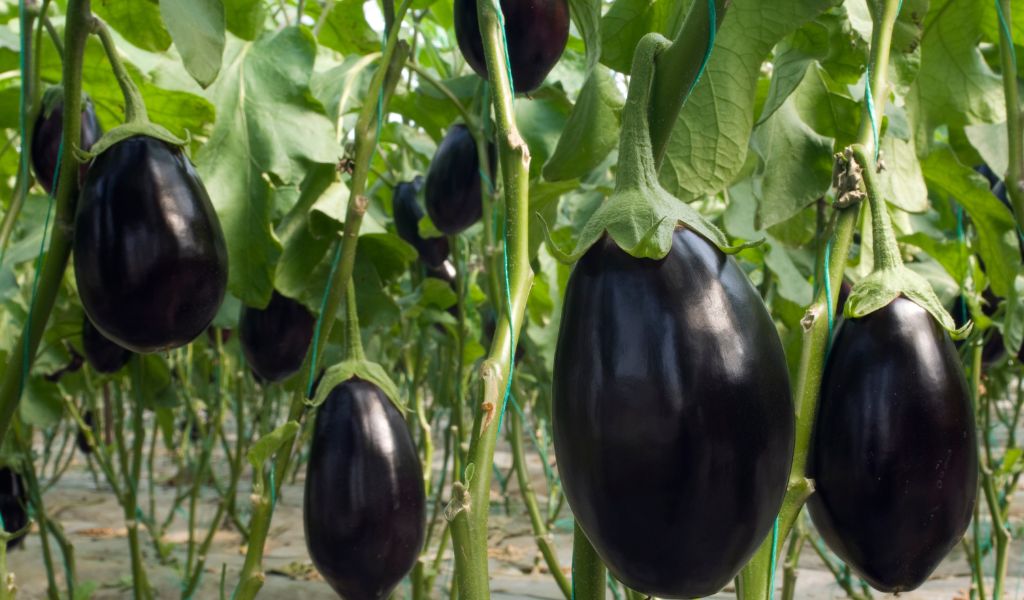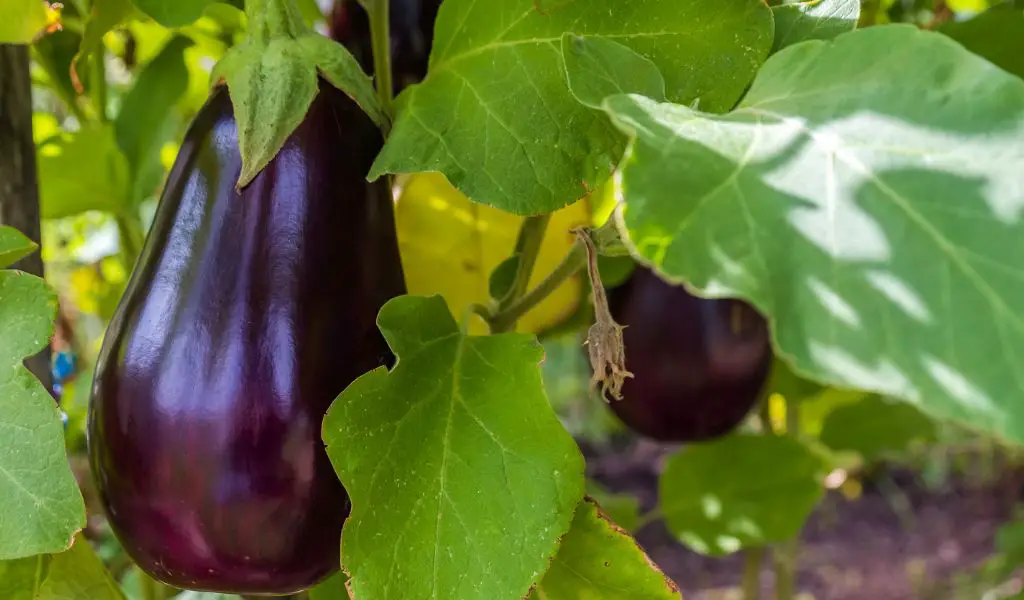Eggplants are a popular vegetable that is enjoyed in many cuisines around the world.
These versatile vegetables are easy to grow and can be enjoyed in many different recipes.
If you’re a beginner gardener looking to grow eggplant, then you’re in the right place. In this article, we’ll provide you with tips and tricks on how to grow eggplant for beginners.
Growing eggplants for beginners requires choosing the right variety, preparing the soil, starting seeds indoors, planting outdoors, watering and fertilizing properly, managing pests and diseases, and harvesting and storing the fruits. Eggplants thrive in warm, sunny locations with well-drained, fertile soil.
Choosing the Right Eggplant Varieties
When it comes to growing eggplants, choosing the right varieties is important. Some of the popular eggplant varieties for beginners include:
Black Beauty: a popular variety that produces dark purple fruits.
Rosa Bianca: an Italian variety that produces light purple fruits with white streaks.
Long Purple: a long and narrow variety that produces dark purple fruits.
Japanese Eggplant: a slender variety that produces long and thin fruits.

Preparing the Soil for Eggplant
Eggplants thrive in well-drained soil that is rich in organic matter. Here’s how to prepare the soil for eggplant:
Choose a sunny spot in your garden with well-drained soil.
Add compost or well-rotted manure to the soil to improve its fertility.
Test the soil pH level and adjust it if necessary. Eggplants prefer a slightly acidic soil with a pH of 5.5 to 6.5.
Growing eggplant for beginners
- Choose the right eggplant varieties for your garden.
- Prepare the soil for eggplant and adjust pH levels if necessary.
- Start seeds indoors and transplant them outdoors once they reach 4-6 inches in height.
- Water and fertilize eggplants regularly, avoiding over-fertilizing.
- Monitor plants for pests and diseases, using insecticidal soap or neem oil if necessary.
- Harvest fruits when they are shiny and firm, storing them in a cool, dry place.
Starting Eggplant Seeds Indoors
If you live in a colder climate, you can start eggplant seeds indoors before transplanting them outdoors.
Here’s how to start eggplant seeds indoors:
Fill seed trays with potting mix and water the soil.
Place the seeds on top of the soil and cover them with a thin layer of soil.
Keep the soil moist and warm by covering the seed trays with plastic wrap.
Once the seedlings have sprouted, remove the plastic wrap and place the trays in a sunny spot.
Planting Eggplant Outdoors
Once the seedlings have grown to about 4-6 inches tall, it’s time to transplant them outdoors. Here’s how to plant eggplant outdoors:
Choose a sunny spot in your garden and prepare the soil as mentioned above.
Dig a hole for each seedling and gently remove them from the seed trays.
Place the seedlings in the holes and cover the roots with soil.
Water the plants thoroughly and add mulch around the plants to retain moisture.
Watering and Fertilizing Eggplants
Eggplants require regular watering and fertilizing to thrive.
Here’s how to water and fertilize eggplants:
Water the plants deeply once a week, or more often during hot and dry weather.
Fertilize the plants every 3-4 weeks with a balanced fertilizer that is high in nitrogen.
Avoid over-fertilizing the plants as this can lead to poor fruit quality.
Managing Eggplant Pests and Diseases
Eggplants are prone to pests and diseases, including aphids, flea beetles, and verticillium wilt. Here’s how to manage eggplant pests and diseases:
Monitor the plants regularly for signs of pests and diseases.
Use insecticidal soap or neem oil to control aphids and flea beetles
Remove any infected plant material to prevent the spread of diseases.
Rotate eggplants with other crops to reduce the risk of soil-borne diseases.
Harvesting and Storing Eggplants
Eggplants are ready to harvest when the fruits are shiny and firm, and the skin is fully colored. Here’s how to harvest and store eggplants:
Use a sharp knife or pruning shears to cut the fruits from the plant.
Handle the fruits gently to avoid bruising or damaging them.
Store the eggplants in a cool, dry place for up to a week.
FAQs:
Q: How long does it take for eggplants to mature?
A: Eggplants typically take 60-80 days to mature, depending on the variety and growing conditions.
Q: Can eggplants be grown in containers?
A: Yes, eggplants can be grown in containers as long as the containers are at least 12 inches deep and have good drainage.
Q: Do eggplants need support?
A: Yes, some eggplant varieties, such as the Italian and Japanese varieties, benefit from staking or caging to keep them upright.
Conclusion and final thoughts
Growing eggplants is easy with the right conditions and can be a rewarding experience.
By choosing the right varieties, preparing the soil, starting seeds indoors, planting outdoors, watering and fertilizing, managing pests and diseases, and harvesting and storing the fruits, you can enjoy a bountiful harvest of delicious and nutritious eggplants.
With the tips and tricks provided in this guide, you can become a successful eggplant gardener in no time.




